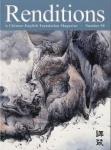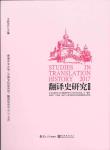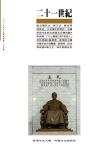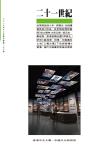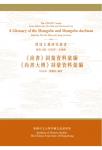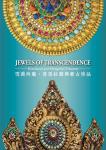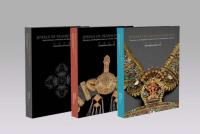Renditions No. 90 (Autumn 2018), Research Centre for Translation
Renditions no. 90 is a general issue featuring a selection of writings from different periods of Chinese history. We begin with excerpts from Meng Jiao's 孟郊 set of poems 'Grief in the Gorges' 峽哀 and three ci poems by Li Qingzhao 李清照. Other highlights comprise Cai Yuanpei's 蔡元培 political allegory 'New Year's Dream' 新年夢, and 'Water and Clouds' 水雲, a long and rather baroque essay by Shen Congwen 沈從文 showing sides of that important author we do not often see. Finally, we offer three stories from contemporary China: Qiao Ye's 喬葉 'Golden Period' 黃金時間, with the focus on the marriage of urban middle-class, Xie Hong's 謝宏 'Who Flies in April?' 誰在四月飛翔, which captures the sad aftermath of the Cultural Revolution, and 'Belle and Grace' 沉魚落雁, a piece by Li Yanfeng 李延風 that offers an upbeat view of life in today's China.
Yu Jian: Selected Poems, Research Centre for Translation
Renditions Paperbacks
Translated by Simon Patton and Naikan Tao
Born in Yunnan province in 1954, Yu Jian has developed a unique poetic voice that has little to do with the cultural centres of Beijing and Shanghai. In 1971, during the Great Proletarian Cultural Revolution (1966–1976), he came across a booklet of classical Chinese poetry hidden away in a remote village temple. This chance discovery 'ripped the blindfold' from his eyes and strengthened his desire to become a poet. Despite the fact that he was working as a riveter in a factory at the time, Yu managed to read widely in world literature thanks to the large volume of banned books in circulation underground. For many years he wrote in virtual isolation, but made an unexpected breakthrough in 1986 when his long, rough and tumble 'stream of life' poem '6 Shangyi Street' appeared in China's leading poetry journal. Since then, Yu has gone on to become one of China's most unlikely contemporary poets, combining a down-to-earth approach with strong interests in wilderness, the loss of local and indigenous ways of life, and a Taoist-inspired mysticism of the ordinary. His numerous books of poetry include Sixty Poems (1989), Naming to a Crow (1993), Note of Anthology (2001), Anthology and Image (2003), and Only the Ocean is as Vast as a Screen (2006). To this day, he continues to live and write in Kunming. This is the first representative selection of his work to appear in English.
Studies in Translation History (2017), Research Centre for Translation Twenty-First Century Bimonthly (Issue 169, October 2018), Research Centre for Contemporary Chinese Culture
The topic for the current Twenty-First Century Review is Democracy in Taiwan. The four essays are from the round table discussion in the Second Chen Kai-wen Lecture on Modern Chinese History.
From Revolutionary Democracy to Democratic Revolution: Development and Transformation of Democratic
Politics in Taiwan by Chang Yu-fa
Merits and Flaws of Taiwanese Democracy by Sechin Yeong-shyang Chien
Revolution, Democracy and National Identity by Chow Po-chung
Reflections on Taiwanese Democracy: Present and Future by Jiang Yi-huah
Four research articles were published in this issue.
History-Writing in the Global Age: The Master Narratives and Periodization of Modern Chinese History Revisited by Li Huai-yin
The Unconventional Interprovincial Movement of the Chinese Communist Party Members (1927-1931) by Li Li
Hong Kong and the Chinese Communist Revolution in 1930s and 1940s by He Bi-xiao
1967 Riots and the Emergence of the Identity of "Hongkonger" by Hui Sung-tak
Dr Chen Fong Ching contributed his article In Memory of Professor Sir Charles K. Kao in the column Scholar's Reminiscences. Twenty-First Century Bimonthly (Issue 169, October 2018), Research Centre for Contemporary Chinese Culture
The topic for the current Twenty-First Century Review is Four Decades of Reform and Opening Up in China II. The three essays reflect on the heritage of the reform and investigate its future direction.
Forty Years of Reform and Opening Up in Historical Perspective by Zhou Xue-guang
A Great Leap Forward: China's Road to Being a Global Power by Ren Jian-tao
The Rise and Fall of the Mass Line in the People's Republic of China: A Perspective on Forty Years of Reform by He Zhao-tian
Four research articles on the social development brought about by the Reform were also published in this issue.
The "Re-Chineseness" of Hakka Associations in Hong Kong since China's Reform and Opening Up by Chong Yuk-sik, Leung Yuen-sang, Victor Zheng
Examining China's Rural Land Management Rights under the Framework of the "Separation of Three Rights" by Liu Xu-dong, He Dong
Toward an Era of Individualization: An Exposition on the Rise of Rights Theory in Contemporary China by Huang Tao
The Return of the "Avant-garde"? — Wu Liang's Sunglow and Contemporary Chinese Avant-garde Literature by Chen Jian-hua Glossaries of the Shangshu and the Shangshu dazhuan, D.C. Lau Research Centre for Chinese Ancient Texts
The 44th and 45th titles of The CHANT Series, A Glossary of the Shangshu and A Glossary of the Shangshu dazhuan, co-edited by Professor Ho Che Wah, Dr. Chu Kwok Fan, and Dr. Cheng Lai Kuen, were published by the Chinese University Press in December 2018. The two books made use of the CHANT Database and a newly designed computer program to cull words from all extant texts and build up specific glossaries for the Shangshu and the Shangshu dazhuan. In these books, the vocabulary first found in the Shangshu and the Shangshu dazhuan are listed and compiled for the first time. The books can also provide empirical data regarding the development of pre-Han and Han lexicons and, as a result of that, broaden the current field of study. Exhibition Brochure of Jewels of Transcendence: Himalayan and Mongolian Treasures, Art Museum
This bilingual exhibition brochure with full-colour illustrations is published in conjunction with the exhibition, "Jewels of Transcendence: Himalayan and Mongolian Treasures". Jewels of Transcendence: Himalayan and Mongolian Treasures, Art Museum
Published in conjunction with the exhibition, "Jewels of Transcendence: Himalayan and Mongolian Treasures", the catalogue comes with 3 volumes, featuring the collections of Chengxuntang and Mengdiexuan, as well as the proceedings.
|












